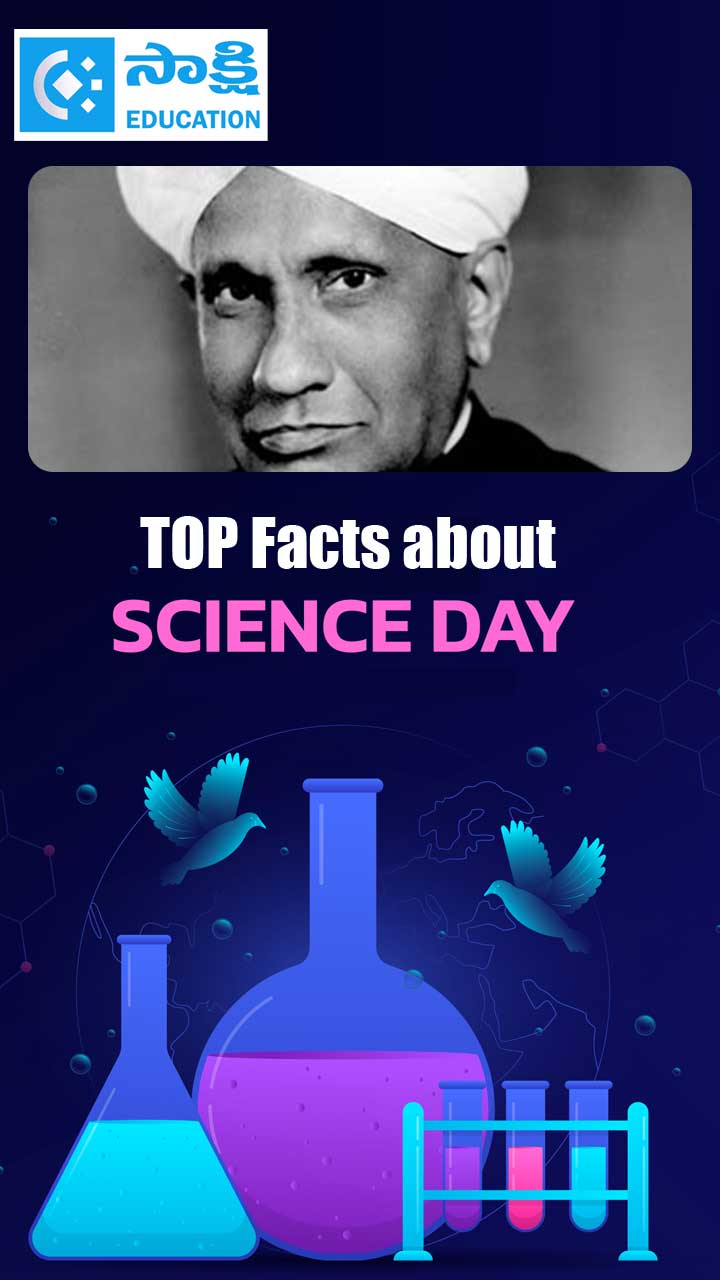The JNTU innovative university- industry interaction “imparting employability skills to students”
Sakshi Education

An exclusive interview with Dr. A. Ramakrishna Prasad Director, University Industry Interaction Cell, JNTU Hyderabad on the mission and objectives of the centre in providing training and placement services to the students and on improving quality of teaching and learning through industry interaction.
According to you, why is there a gap between industry requirements and academic delivery?
Technologies advance and industries inherit these technologies according to the needs of the consumer. The academic curriculum changes every two years irrespective of the fortnightly changes happening in the industry. The curriculum once finalized is fixed for the entire four years of that particular batch of students and no modification is possible. Therefore, we feel a little gap between industry requirements and academic delivery.
So, what can be done to bridge this gap?
The University Industry Interaction Centre in the JNTU is mainly created to bridge the gap between industry requirements and academic delivery. We conduct awareness programs, workshops, industry interactions to provide student preparedness to the ongoing developments in the industry.
Do you agree that there is no existing model or limited academic and industry collaboration in our university setup?
There is a perfect ecosystem in the U.S education where career counselors are available from the primary schools itself. U.S universities encourage product innovations where R&D is carried on in its campus whereas our universities have not attained that maturity level. Take an example of GOOGLE which is the output of an M.Tech thesis in an U.S. university where collaboration with the industry is dynamic.
What main responsibility UII Cell is having in the university?
UII Cell is a single point of source to the industry for seeking manpower requirement, provide students internships, summer trainings and projects. We promote collaboration between university and industry for imparting quality education and employability skills to the students. To improve quality of teaching and learning through industry interaction, we encourage organizations to setup incubation centers and labs in our university.
Does your centre cater to all the affiliated colleges under the JNTU?
Yes, we provide career guidance and counseling through seminars and workshops to all the 463 colleges under the jurisdiction of JNTU Hyderabad. We organize regular meetings of the placement officers of the colleges and from this year, we are planning to conduct district wise industry-academia interaction for a cluster of colleges.
How could be the placement trend during this year?
As most of our IT Job scenario is driven by the U.S. economy and to extent west European countries, placement trend have slowed down this year but there is a bright chance of improving from the next quarters due to the fiscal stimulus offered by the respective Governments.
What is the main purpose of maintaining Project Bank and Idea Bank in the UIIC website?
The objective of Project Bank section of the website is to help students obtain, execute and successfully learn from the project work. Projects of real time industry experience are posted in the website and students get access to them. The objective of Idea bank is to encourage students to think innovatively and post innovative and creative ideas for new products/processes.
Can you tell us what kind of training UII cell is giving to students prior to campus placements?
The UII Cell is responsible for the co-ordination and implementation of all training and placement activities for students. We provide training for two types of skills, one is the soft skills and the other is the employability skills. Within employability skills, technology advances like mobile technology and cloud computing are taught.
While joining B.Tech what kind of foresight students should have to build up their career?
Right from the second year students should decide in what direction they want to go. The various career options available to them are Higher Education, Govt. Jobs, Jobs in Public Sector units, Bank Jobs and Private Sector Jobs or certainly start their own enterprises to become entrepreneurs. While choosing higher education they can study abroad or pursue M.Tech, M.B.A or other professional Job oriented courses in India.
Are placements branch specific in Engineering?
As you know students of all branches of Engineering are eligible for IT Jobs. For mechanical engineers, the avenues for Jobs are in Testing, Production and Manufacturing. The electronic engineers can go for analog, embedded and VLSI fields.
How are software companies categorized?
We can divide software companies into product based and service based. Companies like IBM, Oracle, Yahoo, and Google are product-based companies where high salary is paid but less people are employed. The starting salary offered in these companies would be around 5-6 lakhs and may reach as high as 50 lakhs. The service-based companies like TCS, Infosys, Wipro, Deloitte and H.P pay average salary but employ more number of people. The starting salary in these companies is around 2.5-3 lakhs.
What are the specific skills that companies look for during the recruitment process?
Most of the companies in campus placements are of IT background and some are core companies. Broadly, jobs can be categorized as product development, R&D and the service sector. For product development, we need academic excellence and programming skills. For R&D we need innovative, creative thinking and documentation. Among the services sector jobs like call centre we need communication skills and especially language skills and for engineering services jobs, we need to be updated on technologies where understanding and answering the technical aspects is the crucial aspect.
Your advice to the students…
The student preparedness for a job is lacking where on an average 10 out of 1000 are employable. Around 85% of the students are neglecting their studies and facing hardships in finding the job after coming out of college. So, students should be well aware of the avenues and the skill sets and prepare accordingly to have a good start in their career.
Dr.A.Ramakrishna Prasad
Director,
University Industry Interaction Cell
Jawaharlal Nehru Technological University Hyderabad
The following table briefs a suggested list of career options / directions after B.Tech.
According to you, why is there a gap between industry requirements and academic delivery?
Technologies advance and industries inherit these technologies according to the needs of the consumer. The academic curriculum changes every two years irrespective of the fortnightly changes happening in the industry. The curriculum once finalized is fixed for the entire four years of that particular batch of students and no modification is possible. Therefore, we feel a little gap between industry requirements and academic delivery.
So, what can be done to bridge this gap?
The University Industry Interaction Centre in the JNTU is mainly created to bridge the gap between industry requirements and academic delivery. We conduct awareness programs, workshops, industry interactions to provide student preparedness to the ongoing developments in the industry.
Do you agree that there is no existing model or limited academic and industry collaboration in our university setup?
There is a perfect ecosystem in the U.S education where career counselors are available from the primary schools itself. U.S universities encourage product innovations where R&D is carried on in its campus whereas our universities have not attained that maturity level. Take an example of GOOGLE which is the output of an M.Tech thesis in an U.S. university where collaboration with the industry is dynamic.
What main responsibility UII Cell is having in the university?
UII Cell is a single point of source to the industry for seeking manpower requirement, provide students internships, summer trainings and projects. We promote collaboration between university and industry for imparting quality education and employability skills to the students. To improve quality of teaching and learning through industry interaction, we encourage organizations to setup incubation centers and labs in our university.
Does your centre cater to all the affiliated colleges under the JNTU?
Yes, we provide career guidance and counseling through seminars and workshops to all the 463 colleges under the jurisdiction of JNTU Hyderabad. We organize regular meetings of the placement officers of the colleges and from this year, we are planning to conduct district wise industry-academia interaction for a cluster of colleges.
How could be the placement trend during this year?
As most of our IT Job scenario is driven by the U.S. economy and to extent west European countries, placement trend have slowed down this year but there is a bright chance of improving from the next quarters due to the fiscal stimulus offered by the respective Governments.
What is the main purpose of maintaining Project Bank and Idea Bank in the UIIC website?
The objective of Project Bank section of the website is to help students obtain, execute and successfully learn from the project work. Projects of real time industry experience are posted in the website and students get access to them. The objective of Idea bank is to encourage students to think innovatively and post innovative and creative ideas for new products/processes.
Can you tell us what kind of training UII cell is giving to students prior to campus placements?
The UII Cell is responsible for the co-ordination and implementation of all training and placement activities for students. We provide training for two types of skills, one is the soft skills and the other is the employability skills. Within employability skills, technology advances like mobile technology and cloud computing are taught.
While joining B.Tech what kind of foresight students should have to build up their career?
Right from the second year students should decide in what direction they want to go. The various career options available to them are Higher Education, Govt. Jobs, Jobs in Public Sector units, Bank Jobs and Private Sector Jobs or certainly start their own enterprises to become entrepreneurs. While choosing higher education they can study abroad or pursue M.Tech, M.B.A or other professional Job oriented courses in India.
Are placements branch specific in Engineering?
As you know students of all branches of Engineering are eligible for IT Jobs. For mechanical engineers, the avenues for Jobs are in Testing, Production and Manufacturing. The electronic engineers can go for analog, embedded and VLSI fields.
How are software companies categorized?
We can divide software companies into product based and service based. Companies like IBM, Oracle, Yahoo, and Google are product-based companies where high salary is paid but less people are employed. The starting salary offered in these companies would be around 5-6 lakhs and may reach as high as 50 lakhs. The service-based companies like TCS, Infosys, Wipro, Deloitte and H.P pay average salary but employ more number of people. The starting salary in these companies is around 2.5-3 lakhs.
What are the specific skills that companies look for during the recruitment process?
Most of the companies in campus placements are of IT background and some are core companies. Broadly, jobs can be categorized as product development, R&D and the service sector. For product development, we need academic excellence and programming skills. For R&D we need innovative, creative thinking and documentation. Among the services sector jobs like call centre we need communication skills and especially language skills and for engineering services jobs, we need to be updated on technologies where understanding and answering the technical aspects is the crucial aspect.
Your advice to the students…
The student preparedness for a job is lacking where on an average 10 out of 1000 are employable. Around 85% of the students are neglecting their studies and facing hardships in finding the job after coming out of college. So, students should be well aware of the avenues and the skill sets and prepare accordingly to have a good start in their career.
Dr.A.Ramakrishna Prasad
Director,
University Industry Interaction Cell
Jawaharlal Nehru Technological University Hyderabad
The following table briefs a suggested list of career options / directions after B.Tech.
| Career Direction | Career Option | Career Description |
|---|---|---|
| Higher Education | B.Tech » M.Tech (Through GATE) » PhD | Careers in Teaching / Industry / R&D / Consulting |
| B.Tech » M.S (Through GRE) » PhD | Careers in Teaching / Industry / R&D / Consulting | |
| B.Tech » MBA (Through CAT/Others) » PhD | Careers in Teaching / Industry / Consulting | |
| Govt. JOBS | B.Tech » Civil Services (Through UPSC) | IAS, IPS, IFS etc. |
| B.Tech » Indian Engineering Services (Through UPSC - IES) | As gazetted rank Engineers in Central Government | |
| B.Tech » State Engineering Services (Through State Public Service Commissions) | As gazetted rank Engineers in State Government | |
| PSU JOBS | As an Entry level Engineer in Public Sector Undertakings (PSU) like BHEL, BEML, DRDL Etc. | As Engineers in PSUs |
| BANK JOBS | As a Probationary Offer in Nationalised Banks | Bank Officer Jobs |
| Private Sector Jobs | As Entry level Engineer in Private Sector Companies like INFOSYS, TCS, WIPRO etc. | Several Careers |
Published date : 30 Jan 2013 01:52PM


















